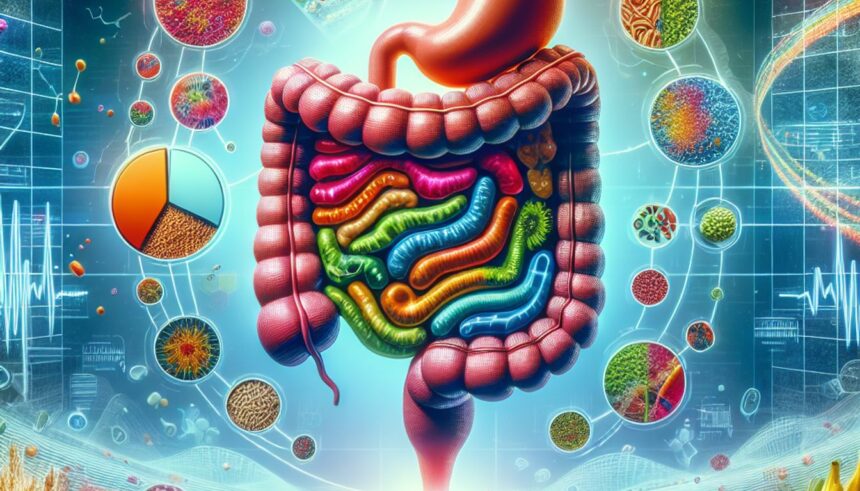The intricate world of the gut microbiome has long fascinated scientists and health enthusiasts alike. Recent advances in microbiome research have shed light on how these microscopic tenants of our gut can influence everything from metabolic processes to immune system function. This burgeoning field is now pivoting towards personalized nutrition, a promising approach that tailors dietary recommendations to the unique microbial makeup of an individual’s gut.
Understanding the Gut Microbiome’s Role in Personalized Health
At its core, the gut microbiome comprises a complex community of bacteria, fungi, viruses, and other microbes residing in our digestive tracts. These organisms play a crucial role in digesting food, synthesizing nutrients, and protecting against pathogens. However, the composition of gut microbiota varies significantly from one individual to another, influenced by factors like diet, lifestyle, and genetic makeup.
Such variability is why personalized nutrition strategies are garnering attention. By aligning dietary recommendations with the specific needs indicated by one’s gut microbiome, it is possible to enhance health management and prevent or mitigate various diseases.
Linking Dietary Compounds with Microbial Health
Recent studies have explored the effects of approximately 150 dietary compounds on the gut microbiome. These compounds, which include both macronutrients and micronutrients, can drastically alter the microbial landscape in the gut. For instance, fiber is recognized for its beneficial effects on the growth of health-promoting bacteria. Conversely, excessive sugars can promote the proliferation of harmful pathogens.
Advancements in this area can lead to highly personalized nutrition strategies. Understanding which foods enhance the growth of beneficial microbes or inhibit harmful ones can tailor diets to individual health needs, potentially transforming everyday health management.
Techniques in Microbiome Research: Paving the Way for Innovation
Tools like genomics, metabolomics, and bioinformatics are revolutionizing our understanding of the gut microbiome. Through these techniques, scientists can identify specific bacterial species, understand their functions, and even predict their behavior under various dietary conditions. This research is crucial for developing effective nutrition strategies that cater to individual microbiome profiles.
Personalized Nutrition: The Future of Diet Planning
Imagine receiving a diet plan that is not only based on your personal preferences and nutritional needs but also on how your gut microbiome will likely react to different foods. This is not a far-off reality but something that could soon be accessible to everyone thanks to breakthroughs in microbiome research.
With more personalized approaches, individuals could potentially manage or avert conditions such as obesity, diabetes, and cardiovascular diseases, which have been linked to the gut microbiome’s condition.
Real-world Applications of Gut Microbiome Insights
In practical terms, gut microbiome testing is becoming more accessible, allowing people to start understanding their own body’s needs better. Hospitals and clinics are gradually adopting these tests, helping dieticians and health professionals provide more accurate dietary advice that goes beyond general guidelines.
Challenges in Personalized Nutrition and Gut Microbiome Research
Despite its potential, the path to integrating personalized nutrition into everyday health practices is fraught with challenges. The complexity of microbial communities and their interactions with host genetics and lifestyle factors means that much remains unknown. Additionally, ethical and privacy concerns regarding data handling in gut microbiome research need addressing to ensure trust and credibility in the science.
In conclusion, unlocking the secrets of the gut microbiome through dedicated research and translating these findings into personalized nutrition strategies represents a frontier in health management. As researchers continue to untangle the complex interactions between dietary compounds and microbiome health, the hope is to pave the way for more targeted, effective health interventions that can be tailored to the unique needs of each individual.
Tags: Science, Health, Gut Microbiome, Personalized Nutrition, Microbiome Research, Dietary Compounds, Nutrition Strategy







